What Immune system do ?
health is Wealth ( Small Changes Big Impact )
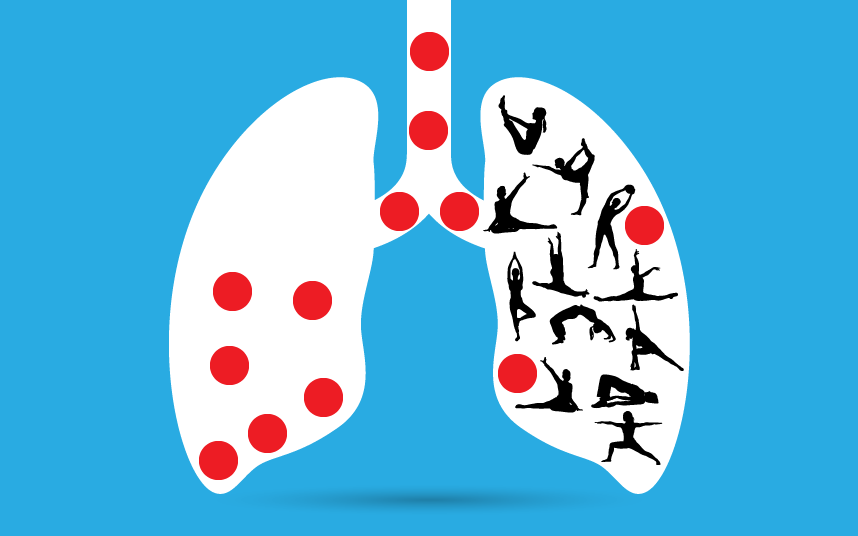
The Immune System Is The Body’s Intricate Network Of Cells, Tissues, And Organs That Cooperate To Fend Off Dangerous Pathogens Like Bacteria, Viruses, Fungi, And Parasites. Which Exercise Is Good For Immune System ?To Preserve The Body’s General Health And Serve As A Defence Against Diseases, It Has As Its Principal Duty The Identification And Destruction Of These Foreign Substances.
The innate immune system and the adaptive immune system are the two primary parts of the immune system.
The Innate Immune System

The Innate Immune System is the body’s initial line of defence and offers broad-spectrum, instant defence against a variety of infections. It consists of numerous cells and proteins that can recognise and get rid of external invaders, as well as physical barriers like the skin and mucous membranes.
The Adaptive Immune System

The adaptive immune system is a specialised defence system that emerges during the course of a person’s life. It is dependent on specialised cells called lymphocytes (B cells and T cells), which can identify particular diseases and produce an immune response specifically geared towards eradicating them.
The adaptive immune system also has a memory component that enables it to recall and react to pathogens more successfully in the past, resulting in immunity.
Which Exercise is Good For Immune System ?
The immune system functions through a convoluted set of relationships and procedures. Immune cells use receptors on their surfaces to recognise and bind to pathogens as they enter the body. This starts a chain of events that includes the cytokine creation and release, which aids in controlling the immune response.
The pathogen is subsequently neutralised or eliminated by immune cells working together, either by engulfing and digesting it (phagocytosis) or by generating antibodies that specifically bind to the pathogen and mark it for elimination.
Although the immune system is intended to defend the body, it occasionally breaks down and leads to immunological-related illnesses. Allergies, autoimmune illnesses, immunodeficiencies (weaker immune responses), and hypersensitivity reactions are some of the ways in which these disorders might present themselves.
Importance of Strong immune system

The maintenance of general health and wellbeing depends heavily on the immune system.
Which Exercise Is Good For Immune System ?
Protection Against Infections
The immune system’s main job is to protect the body from pathogens such as bacteria, viruses, fungi and parasites. The immune system aids in the prevention of a number of infectious diseases by identifying and destroying these harmful germs.
Disease Resistance and Recovery
Disease resistance requires a strong immune system. When the immune system is working at its best, it may effectively identify and eliminate invasive microorganisms, lowering the severity and duration of infections. A strong immune response also helps the body recover from an infection or disease.
Tissue Repair and Healing
The immune system plays a role in the processes of tissue repair and wound healing. It directs the inflammatory reaction, which aids in clearing out damaged cells and starting the healing process. The immune system controls the synthesis of chemicals such as growth factors and other critical ones for tissue regeneration.
Which Exercise Is Good For Immune System ?
Regulation of Allergies
Although allergies are caused by an overreactive immune response to innocuous chemicals, the immune system plays a critical role in identifying and reacting to potential allergens. It is possible to prevent or reduce allergy reactions by comprehending and controlling immunological responses to allergens.
Prevention of Autoimmune Disease
Prevention of Autoimmune Disease: By discriminating between self- and non-self cells, the immune system supports the maintenance of self-tolerance. Autoimmune disorders, in which the immune system mistakenly assaults the body’s own cells and tissues, can develop when this self-recognition system fails. Autoimmune illnesses can only be prevented or managed with a healthy immune system.
All things considered, the immune system is crucial for preserving health, preventing infections, and enabling the body to fight off a variety of diseases. It is a complicated and intricate system that needs adequate maintenance and assistance to operate at its best.
Immune system and exercise
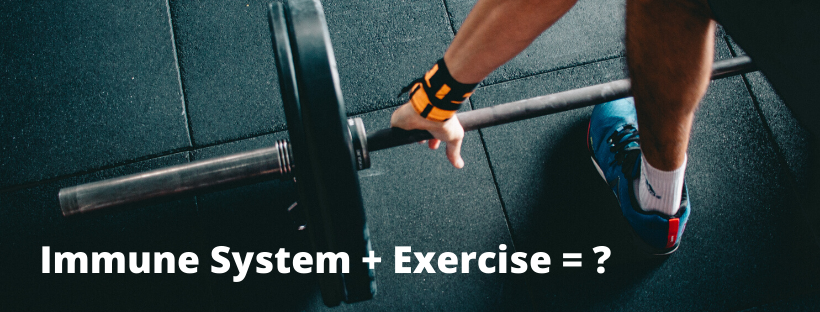
Relation:
Exercise and the immune system have a complicated interaction that can be both helpful and impacted by a number of things.
which exercise is good for Immune System ?
Improved Immune Function
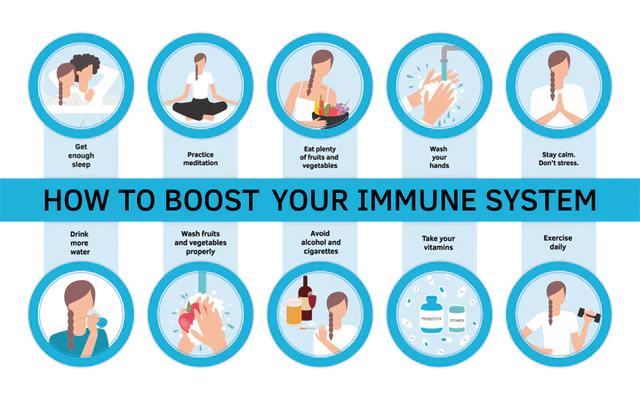
It Has Been Demonstrated That Regular, Moderate-Intensity Exercise Improves Immune System Performance. It Can Boost Immune Cell Circulation, Which Will Improve Their Ability To Recognise And Get Rid Of Invaders. Immune Cell Mobility Is Induced By Exercise, Which Enhances Immune Response And Surveillance.
Lower risk of infections

Regular physical exercise has been linked to a lower risk of infections of the respiratory system, including the common cold and flu. Exercise can improve immune function, enhancing one’s resistance to pathogens and lowering the likelihood and severity of infections.
Anti-inflammatory Effects

Exercise has a number of anti-inflammatory effects on the body. The immune system may be harmed by chronic inflammation, which can also help some diseases develop. Regular exercise promotes a balanced immune response and supports the health of the immune system by reducing systemic inflammation.
which exercise is Good For Immune System ?
Stress Reduction

Exercise is believed to help people feel less stressed. High amounts of stress can impair immunity, making people more prone to diseases. Regular physical activity helps strengthen the immune system and reduce stress.
Increased Immune Response

It has been demonstrated that exercise improves the body’s immunity to vaccines. It can enhance antibody production and boost the efficiency of vaccination, assisting in the development of protection against particular infections.
Individual Variations

It’s important to keep in mind that everyone’s immune systems and reactions to exercise will be different. Age, fitness level, general health and heredity are just a few examples of variables that can affect how exercise affects immune function in various people.
Which Exercise is Good For Immune System ?
consistent moderate-intensity exercise strengthens the immune system, enhances immunological function, and lowers the risk of infections. Over-training or excessive activity. however, might momentarily weaken the immune system. Supporting immune system health necessitates finding a balance between exercise and proper recuperation time, controlling stress and living a healthy lifestyle.
Does Exercise Help Immune System ?

The immune system needs support and is strengthened by regular exercise. Exercise has been shown to improve immune function, lower the risk of infection, and improve general health.
Exercise Improves Immune Cell Circulation Throughout The Body, Increasing Immune Cell Effectiveness In Detecting And Eliminating Pathogens. Additionally, it has anti-inflammatory properties that support a balanced immune response and reduce chronic inflammation.
Exercise helps to strengthen the immune system by lowering stress levels because elevated stress levels can impair immune system performance. Regular exercise has also been linked to increased vaccine response and a decreased risk of respiratory tract infections.
The immune system might momentarily be suppressed by intense or prolonged exercise, therefore it’s crucial to maintain a balance. Overall, a great technique for fostering a healthy immune system is to regularly engage in moderate-intensity exercise.
Exercise benefits the immune system in Various ways:-
Improvement in Circulation and Immune cell Activity

Circulation is improved as a result of exercise because it increases blood flow, which allows immune cells to circulate more freely. As a result, immune cells are better able to recognise and get rid of pathogens in a variety of tissues and organs.
Improved Immune Cell Activity, Regular exercise increases the activity of several immune cells, such as macrophages, neutrophils and natural killer cells. These cells are essential for locating and eliminating dangerous germs. which aids in the prevention of illnesses.
which exercise is Good for Immune System ?
increased Production of anti-microbial proteins and effects on inflammation

Increased Production of Antimicrobial Proteins: Antimicrobial proteins like cathelicidins and defensins are released as a result of exercise. These proteins directly combat microbes, assisting in the elimination of pathogens and lowering the chance of infections.
Effects on Inflammation, Prolonged inflammation can harm the immune system. Exercise regularly provides anti-inflammatory properties that help the body produce less pro-inflammatory chemicals. By doing this, you can encourage a more balanced immune response and avoid exaggerated inflammation, which can harm your immune system.
Manage stress and Improves sleep quality

Exercise has been shown to lower stress and enhance mental health. High amounts of stress can impair immunity, putting the body at greater risk for diseases. Regular exercise lowers stress hormones and encourages endorphin release, which has a good effect on immune system performance.
Regular exercise has been shown to increase the efficiency, length and quality of sleep. For the immune system to remain strong, adequate sleep is necessary. It enables the body to rest, heal and rebuild itself while promoting ideal immunological performance.
Which Exercise is Good for Immune System ?
Enhanced Anti-body Response

Exercise has been discovered to increase the creation of antibodies, which are proteins that target and neutralise infections specifically. The body’s capacity to resist infections is strengthened by this antibody reaction.
activity helps strengthen the immune system, but too much or too hard activity without enough time for rest and recovery can have the opposite effect. Overtraining can weaken the immune system and raise the chance of getting sick. To maximise the effects of exercise on the immune system, one must maintain a balanced exercise programme that combines both moderate-intensity sessions and suitable rest times.
Remember that individual responses to exercise can vary, and other factors like diet, sleep, and overall lifestyle also contribute to immune health. It’s always a good idea to consult with a healthcare professional or a qualified fitness expert for personalized advice on incorporating exercise into your routine to support your immune system.
Foods to boost Immune system ?
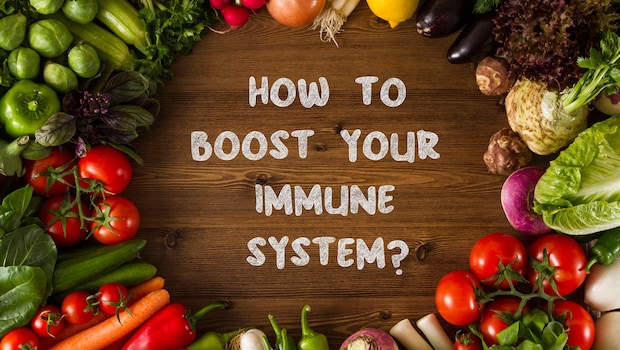
A healthy immune system is essential for defending the body against infections and diseases. Although there isn’t a single item that may miraculously increase immunity, including a range of nutrient-rich foods in your diet can help it perform better.
Oranges, lemons and grapefruits are just a few examples of citrus fruits that are great providers of vitamin C, which helps to produce white blood cells.
Antioxidants found in berries like blueberries and raspberries support a stronger immune system. Due to its antibacterial qualities, garlic may help reduce the incidence of illnesses.
Probiotics found in yoghurt and other fermented foods are helpful for maintaining a balanced gut flora. Antioxidants including vitamins A, C and E are present in leafy greens like kale and spinach.
Zinc and vitamin E, which are necessary for immune cell activity, are found in nuts and seeds. Immune health is also aided by green tea, turmeric and probiotic-rich foods like sauerkraut and kefir. Remember that a strong immune system is built on a balanced diet and other healthy behaviours.
which exercise is good for immune system ?
Fruits like citrus

Oranges, lemons, grapefruits and limes are just a few examples of citrus fruits that are high in vitamin C. White blood cell formation. which is essential for battling infections, has been shown to rise in response to vitamin C. The vitamin C in other fruits like papaya, kiwi and strawberries is also quite good.
Berries

Berries like blueberries, raspberries and blackberries. are rich in antioxidants that support the immune system and shield the body from oxidative stress. Additionally, they have vitamins and minerals that help the immune system work.
Garlic
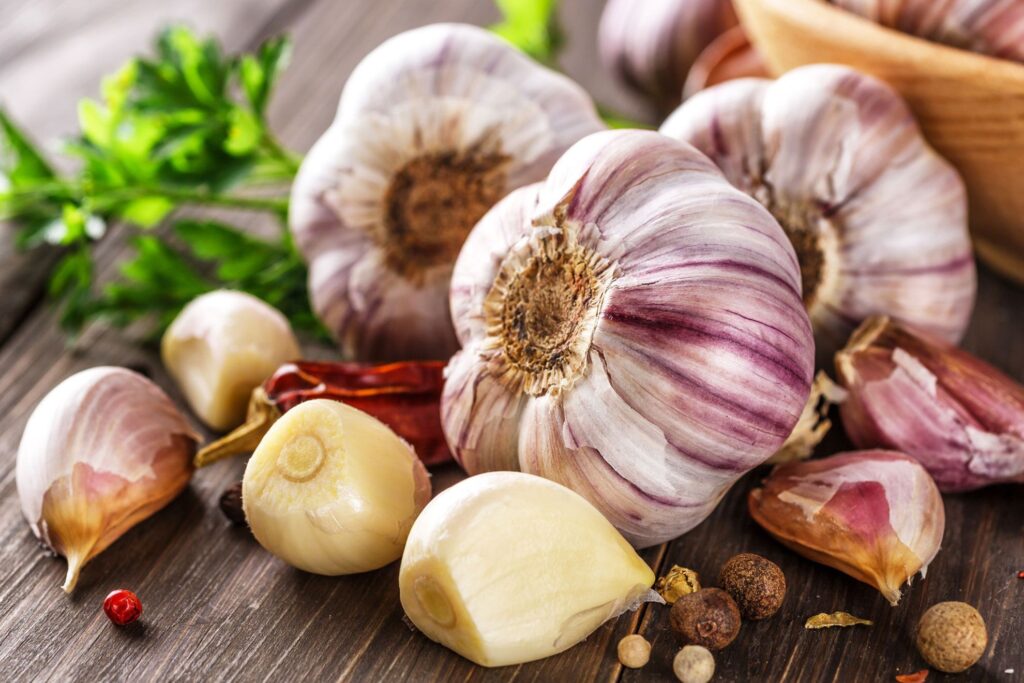
For its ability to strengthen the immune system, garlic has been utilised for ages. Allicin, one of its constituents, has antiviral and antibacterial effects. Additionally, garlic is thought to support healthy immune function and reduce the risk of several infections.
Which Exercise is Good For Immune System ?
Ginger

Due to its anti-inflammatory characteristics, ginger can help reduce bodily inflammation. Additionally, it might act as an antibacterial. Including ginger in your diet. whether it’s fresh or powdered, can help to support your immune system.
Yogurt
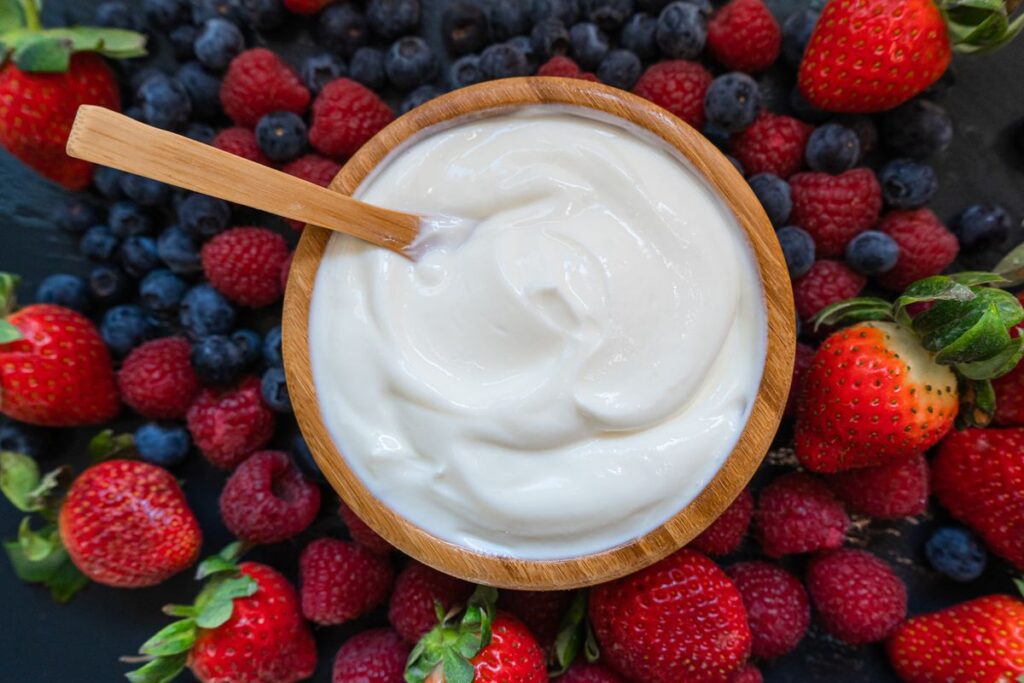
Yoghurt contains advantageous probiotics that support a balanced gut microbiota, as do other fermented foods. A healthy gut microbiota is necessary for a robust immune system. Look for yoghurts with the phrase “live and active cultures” clearly mentioned on the label.
Spinach and other leafy green

Leafy greens like spinach and kale are high in antioxidants, fibre, and vitamins A, C and E. Swiss chard also has high levels of vitamins A, C, and E. These vitamins and minerals enhance immune system health and offer cellular protection.
Which Exercise is Good For Immune System ?
Nuts and seeds

Almonds, walnuts, sunflower seeds and pumpkin seeds are great sources of vitamin E. which is necessary to keep the immune system in good shape. They also include beneficial lipids and zinc, both of which are necessary for immune cell activity.
Green Tea

Green tea is a powerful source of catechins, an antioxidant that has been found to strengthen the immune system. The consumption of one or two cups of green tea each day can help your immune system.
Turmeric
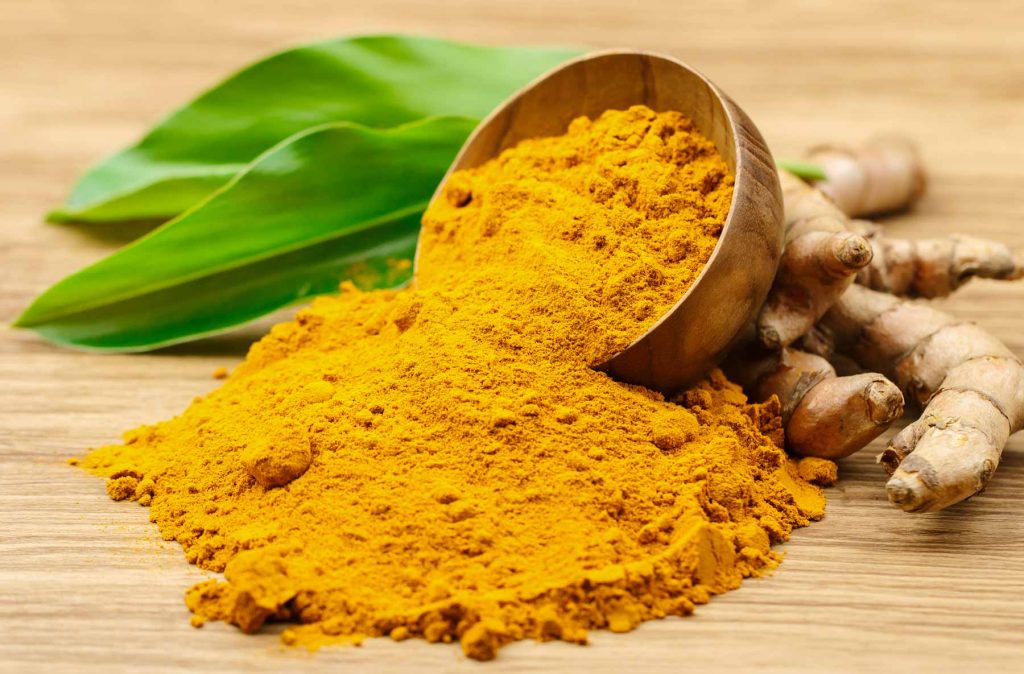
Curcumin, a substance in turmeric with anti-inflammatory and antioxidant effects is present in turmeric. The immune system can benefit from consuming warm turmeric tea or adding turmeric to your meals.
Which Exercise Is Good For Immune System ?
Probiotic rich Foods
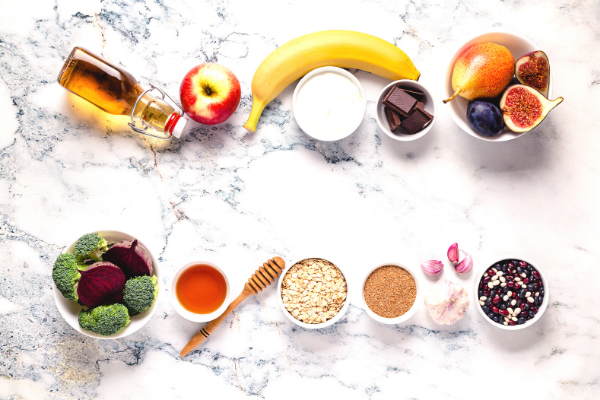
Foods high in Probiotics, which may be found in items like kimchi, kefir, and kombucha, support a balanced gut microbiome. A healthy immune system depends on a diverse and balanced gut microbiota.
A healthy lifestyle, which includes regular exercise, enough sleep and stress management, is crucial for a strong immune system. Always seek personalised guidance on your unique dietary requirements from a healthcare practitioner or a licenced dietitian.
Exercise for Immune System ?

Regular exercise is essential for enhancing immune system performance. The immune system has been proven to benefit from physical activity in a number of ways. Exercise improves circulation, which makes it possible for immune cells to move more quickly throughout the body to detect and get rid of invaders.
Additionally, it increases the development of immune cells that are vital for warding off infections, including white blood cells and lymphocytes. These immune cells are more active and effective when they exercise regularly, which increases their capacity to find and eliminate infections.
Exercise also lessens chronic inflammation, which can compromise the immune system. Exercise indirectly aids immune function by reducing stress and encouraging calm. The added benefit of sunlight exposure during outdoor activities helps produce vitamin D, which is crucial for immune system function.
Combining various forms of exercise is typically advised when it comes to strengthening the immune system:-
Aerobic Exercise

Exercises that boost cardiovascular health and circulation include brisk walking, jogging, cycling, swimming and aerobic programmes. It has been demonstrated that regular aerobic exercise improves immunological health and lowers the risk of developing chronic diseases.
Strength Training

Exercises that involve resistance, such as body weight exercises, resistance bands or weightlifting can help to maintain and develop muscle mass. The production of hormones and growth factors that support immune cell activity are stimulated by strength exercise.
Which Exercise Is Good For Immune System ?
Yoga and Stretching

Regularly doing yoga or doing stretches will help lower tension and encourage relaxation. Stress management techniques like yoga can indirectly boost immune function because long-term stress can impair the immune system.
Exercise of a Moderate Intensity

Exercises of a moderate level, such as brisk walking, light running or cycling can improve the immune system. These workouts promote lymphatic flow, raise immune cell activity and improve blood circulation.
Interval Training

Exercise that alternates between bursts of high intensity and rest or lower intensity is known as an interval workout. It has been demonstrated that this kind of exercise enhances general fitness and has favourable effects on immunological indicators.
Which Exercise is good For Immune System ?
Outdoor Activities

Being outside particularly in nature, has several advantages for immunological health. Sunlight exposure aids in the body’s production of vitamin D, which is important for immunological health. Outdoor pursuits offer chances for fresh air, stress relief and physical activity.
The immune system’s reaction can be enhanced by including a variety of exercise forms. such as aerobic exercise, strength training and flexibility exercises. Striking a balance is essential. though, as prolonged or vigorous exercise without enough rest might temporarily stifle the immune system.
It’s ideal to seek advice from a medical practitioner or a certified fitness professional when creating an exercise programme that meets your specific demands and encourages maximum immune health.
It’s nearly impossible to find educated people
for this subject, but you sound like you know what you’re talking about!
Thanks
Here is my web-site: John E. Snyder
Pingback: The history and cultural significance of green tea
Pingback: The Power of Exercise: Can It Help with Depression?
Pingback: Why teens fitness matters?